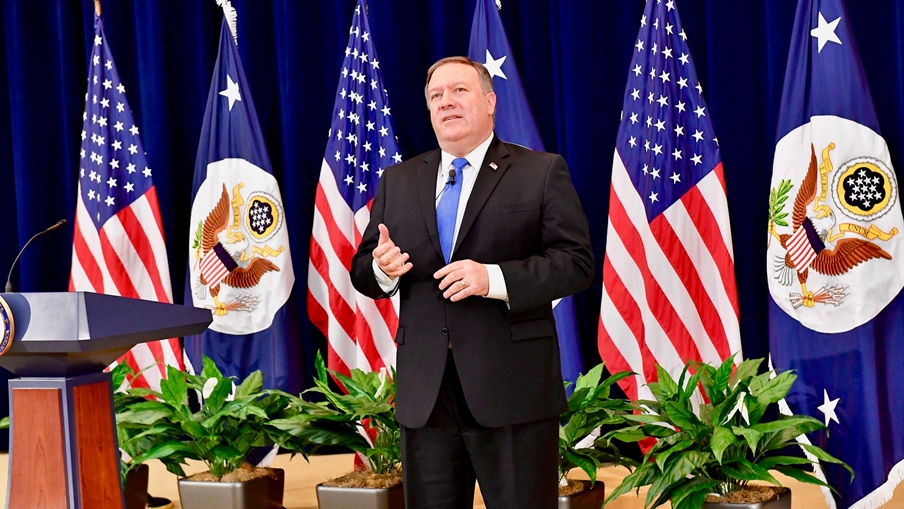The U.S. on Wednesday imposed sanctions on companies and individuals involved in trading Iranian petrochemicals, defying calls from Tehran and elsewhere to ease its measures as Iran fights the new coronavirus pandemic.
The latest sanctions designations, initially previewed Tuesday by Secretary of State Mike Pompeo during a press conference, target companies based in South Africa, Hong Kong and China, as well as three individuals, all of whom are executives at the designated companies.
“Our sanctions will deprive the regime of critical income from its petrochemical industry and further Iran’s economic and diplomatic isolation,” Pompeo said in a statement on Wednesday.
The newly designated companies knowingly engaged in a significant transaction for the purchase, acquisition, sale, transport or marketing of petrochemical products from Iran, according to the State Department. It follows sanctions in June 2019 on Iran’s largest petrochemical holding group, Persian Gulf Petrochemical Industry Co. (PGPIC), and additional petrochemical-related designations announced in January.
They include South Africa-based SPI International Proprietary Limited, as well as the entities that own or control it: Main Street 1095 and the Iran-based Armed Forces Social Security Investment Company.
Main Street 1095, a South African subsidiary of the Armed Forces Social Security Investment Company, bought SPI International’s shares in 2013 from a subsidiary of South African chemical giant Sasol, according to a press release and securities filings from the time.
The Armed Forces Social Security Investment Company as of 2019 held stakes in companies inside Iran, according to Iranian corporate records and the company’s website. The organization is controlled by the Armed Forces Social Security Organization, an entity tied to several sanctioned Iranian military and government entities that provides insurance and other services to the Iranian armed services personnel. The social security organization is overseen by the Islamic Revolutionary Guard Corps (IRGC), Iran’s Law Enforcement Forces (LEF), the Ministry of Defense and Armed Forces Logistics (MODAFL) and the Armed Forces General Staff.
The State Department also sanctioned six companies based in Hong Kong and China: McFly Plastic HK Limited; Saturn Oasis Co., Limited; Sea Charming Shipping Company Limited; Dalian Golden Sun Import & Export Co., Ltd.; Tianyi International (Dalian) Co., Ltd.; and Aoxing Ship Management (Shanghai) Ltd.
The sanctions come as an Iranian state TV journalist, who is a medical doctor, said this week that the coronavirus, known as COVID-19, could kill up to 3.5 million people in the country if people ignore health guidance. On Wednesday, Iran reported more than 17,000 cases and at least 1,100 deaths from the virus. Tehran temporarily freed about 85,000 people from jail to prevent its spread, a judiciary spokesman said Tuesday.
There are more than 200,000 confirmed cases worldwide, and both the U.S. and Iran are taking drastic measures to battle humanitarian crises at home. Iranian, Russian and Chinese officials have called on the U.S. to lift sanctions that impedeIran’s ability to combat the virus, but Pompeo on Tuesday held firm, saying Tehran lied about the potential effects of the virus, engaged in a misinformation campaign surrounding its origins, and rejected U.S. offers of support.
Earlier this month, the U.S. Treasury Department issued expanded guidance on authorized transactions with Iran amid the outbreak, laying out humanitarian exemptions to sanctions.“There are a number of ways” to send goods and services to Iran in response to the COVID-19 outbreak, consistent with U.S. sanctions, the guidance said.
